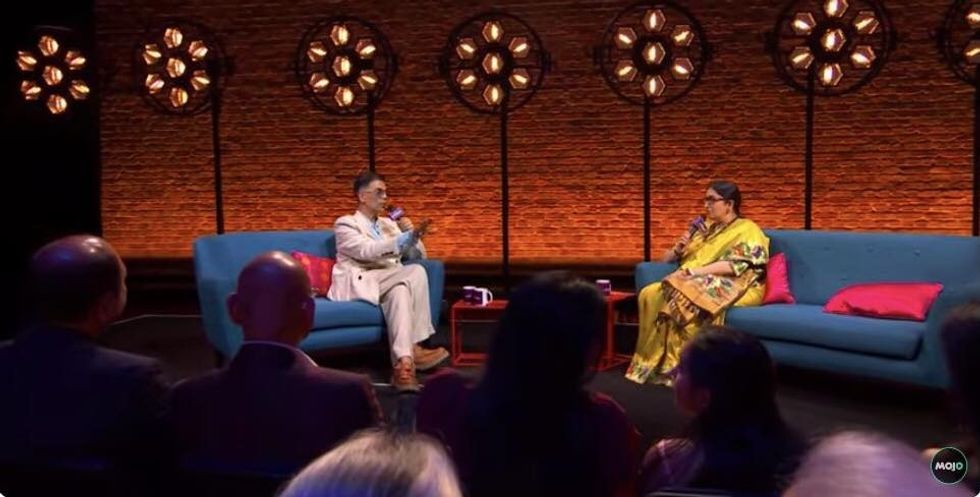FOUR St Louis police officers were hit by gunfire late on Monday during violent protests over the death of a black man in police custody, hours after President Donald Trump vowed to use the U.S. military to halt the spreading clashes.
Trump deepened outrage by posing at a church clutching a bible after law enforcement officers used teargas and rubber bullets to clear the way for him to walk there after he made his remarks in the White House Rose Garden.
Breaking news Demonstrators set fire to a strip mall in Los Angeles, looted stores in New York City and clashed with police in St Louis, Missouri, where four officers were taken to hospital with non-life-threatening injuries.
"Officers are still taking gunfire downtown & we will share more info as it available," St Louis Police said on Twitter.
Trump has condemned the killing of George Floyd, a 46-year-old African American who died after a white policeman pinned his neck under a knee for nearly nine minutes in Minneapolis on May 25, and has promised justice. But he said rightful protests could not be drowned out by an "angry mob".
"Mayors and governors must establish an overwhelming law enforcement presence until the violence has been quelled," Trump said. "If a city or state refuses to take the actions that are necessary to defend the life and property of their residents, then I will deploy the United States military and quickly solve the problem for them."
Following his address, Trump walked through an area that had been cleared by police to nearby St. John's Episcopal Church, where he posed for pictures with his daughter, Ivanka, and U.S. Attorney General William Barr.
The presiding bishop of the Episcopal Church diocese in Washington D. C., Michael Curry, was among those who criticized Trump's use of the historic church for a photo opportunity.
"In so doing, he used a church building and the Holy Bible for partisan political purposes," he said on Twitter. The church suffered minor fire damage during protests on Monday night.
The White House said it was clearing the area before a curfew.
A few hours later, thousands of people marched through Brooklyn, shouting "Justice now!" while cars drove alongside, some drivers honking in support.
Television images showed crowds smashing windows and looting luxury stores along Fifth Avenue in Manhattan before the city's 11 p.m. curfew. Mayor Bill de Blasio said the curfew would be moved to 8 p.m. on Tuesday.
Two police officers were struck by a car at a demonstration in Buffalo, New York, on Monday night. Officials said the driver and passengers were believed to be in custody. It was not immediately clear whether the incident was intentional.
FIRE IN HOLLYWOOD
In Hollywood, dozens of people were shown in television images looting a drug store. Windows were shattered at a nearby Starbucks and two restaurants.
Anti-police brutality marches and rallies have turned violent after dark each night over the last week.
A second autopsy ordered by Floyd's family and released on Monday found his death was homicide by "mechanical asphyxiation," or physical force that interfered with his oxygen supply. The report says three officers contributed to his death.
The Hennepin County Medical Examiner later released autopsy findings that also called Floyd's death homicide by asphyxiation. The county report said Floyd suffered cardiopulmonary arrest while being restrained by police and that he had arteriosclerotic and hypertensive heart disease, fentanyl intoxication and recent methamphetamine use.
Derek Chauvin, the 44-year-old Minneapolis police officer who kneeled on Floyd, was arrested on third-degree murder and second-degree manslaughter charges. Three other officers involved in the arrest have not been charged.
Floyd's death was the latest case of police brutality against black men that was caught on videotape and prompted an outcry over racism in U.S. law enforcement.
It reignited simmering racial tensions in a politically divided country that has been hit hard by the coronavirus pandemic, with African Americans accounting for a disproportionately high number of cases.
Dozens of cities are under curfews not seen since riots after the 1968 assassination of Martin Luther King Jr. The National Guard deployed in 23 states and Washington, D.C.
Most Americans were just emerging from weeks of strict "stay-at-home" orders imposed over the pandemic.
On Monday, dozens paid their respects to Floyd outside Cup Foods, the scene of his death, leaving flowers and signs. A little girl wrote, “I’ll fight with you,” in the road.
Terrence Floyd, the victim's brother, told the gathering he wanted people to get educated and vote rather than resort to violence and destruction. "Let's do this another way," he said.
James Pool, a 31-year-old former Marine, said he hoped peaceful protests would make a difference. "I want to see more community and this country come together and stop letting the powers that be divide us," he said.















 Karan Johar and Smriti Irani
Karan Johar and Smriti Irani
